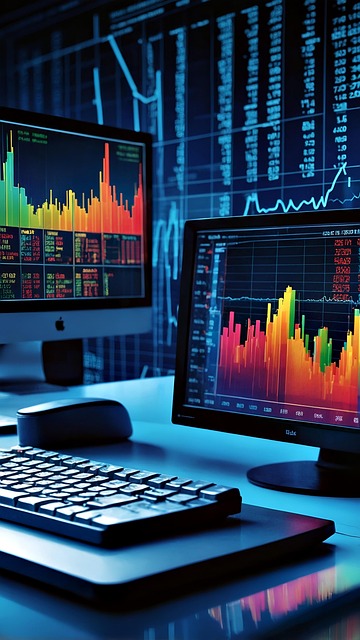AI marketing automation for restaurants is a game-changer, offering strategic advantages through customer data analysis, menu optimization, and efficient operations. By automating tasks like segmentation and personalized messaging, restaurant owners free up time to enhance the dining experience. AI algorithms predict trends, reduce food waste, and tailor dishes to demand, increasing profitability. Chatbots handle inquiries, while NLP powers reservations, freeing staff for critical tasks. This technology drives growth through targeted promotions and loyalty programs, ultimately revolutionizing restaurant marketing and operations.
“Unleash the power of AI marketing automation to transform your restaurant’s operations! This comprehensive guide explores how artificial intelligence can revolutionize business intelligence and workflow automation in the culinary industry. From streamlining marketing strategies to optimizing daily tasks, AI offers a game-changing approach for restaurant owners.
We’ll delve into the basics of AI marketing automation, uncover practical implementation strategies, and highlight the numerous benefits it brings. Additionally, real-world case studies will showcase successful AI transformations within the food sector.”
- Understanding AI Marketing Automation for Restaurants: The Basics
- Implementing AI in Restaurant Workflows: Strategies and Benefits
- Case Studies: Successful AI Automation in the Food Industry
Understanding AI Marketing Automation for Restaurants: The Basics

AI marketing automation for restaurants involves leveraging intelligent systems to streamline and optimize various marketing tasks, from customer segmentation and personalized messaging to campaign management and performance analytics. By automating repetitive and time-consuming processes, restaurant owners and managers can focus more on enhancing the dining experience and growing their business.
This technology enables businesses to gather and analyze customer data, such as purchase history, preferences, and online behavior, to create highly targeted marketing campaigns. For instance, AI algorithms can automatically trigger promotional emails or text messages based on specific criteria, like a customer’s last visit date or preferred cuisine type. This level of personalization not only improves engagement but also increases the likelihood of repeat business and positive word-of-mouth recommendations.
Implementing AI in Restaurant Workflows: Strategies and Benefits

Implementing AI in restaurant workflows is a game-changer, offering both strategic advantages and significant benefits. By leveraging AI marketing automation for restaurants, operators can streamline operations, enhance customer experiences, and gain valuable insights. For instance, AI algorithms can optimize menu planning by analyzing sales data, popular trends, and seasonal variations, ensuring that dishes are tailored to meet demand. This not only reduces food waste but also increases profitability.
Additionally, AI-driven automation can revolutionize reservation systems, enabling real-time table management and efficient staffing. Chatbots powered by natural language processing (NLP) can handle customer inquiries, provide table recommendations, and even take reservations, freeing up staff for more critical tasks. Moreover, AI can personalize marketing campaigns by segmenting customers based on their preferences and behavior, increasing the effectiveness of promotions and loyalty programs.
Case Studies: Successful AI Automation in the Food Industry

In recent years, the food industry has witnessed remarkable transformations through the integration of AI and automation, particularly in streamlining business processes and enhancing overall efficiency. One prominent area where AI marketing automation for restaurants is making waves is menu optimization. By analyzing vast amounts of customer data, AI algorithms can identify popular dishes, predict trends, and suggest tailored menu items, thereby increasing sales and improving customer satisfaction. For instance, a study conducted by a leading fast-casual restaurant chain revealed that implementing AI-driven menu personalization resulted in a 15% increase in average order value.
Additionally, AI automation has proven invaluable for inventory management. Smart systems can monitor ingredient usage, predict demand based on historical sales data and seasonal trends, and automatically adjust orders to minimize food waste. This not only reduces operational costs but also ensures fresh ingredients are always available. A case in point is a gourmet pizza chain that utilized AI marketing automation for restaurants to optimize its supply chain, leading to a 20% decrease in inventory carrying costs without compromising on product quality or customer experience.
AI marketing automation for restaurants is not just a trend, but a game-changer. By implementing AI in restaurant workflows, businesses can streamline operations, enhance customer experiences, and drive growth. As seen in various case studies, successful integration of AI automation in the food industry translates to increased efficiency, improved menu recommendations, and tailored marketing strategies. Embracing these technologies is crucial for restaurants aiming to stay competitive and relevant in today’s digital era.
